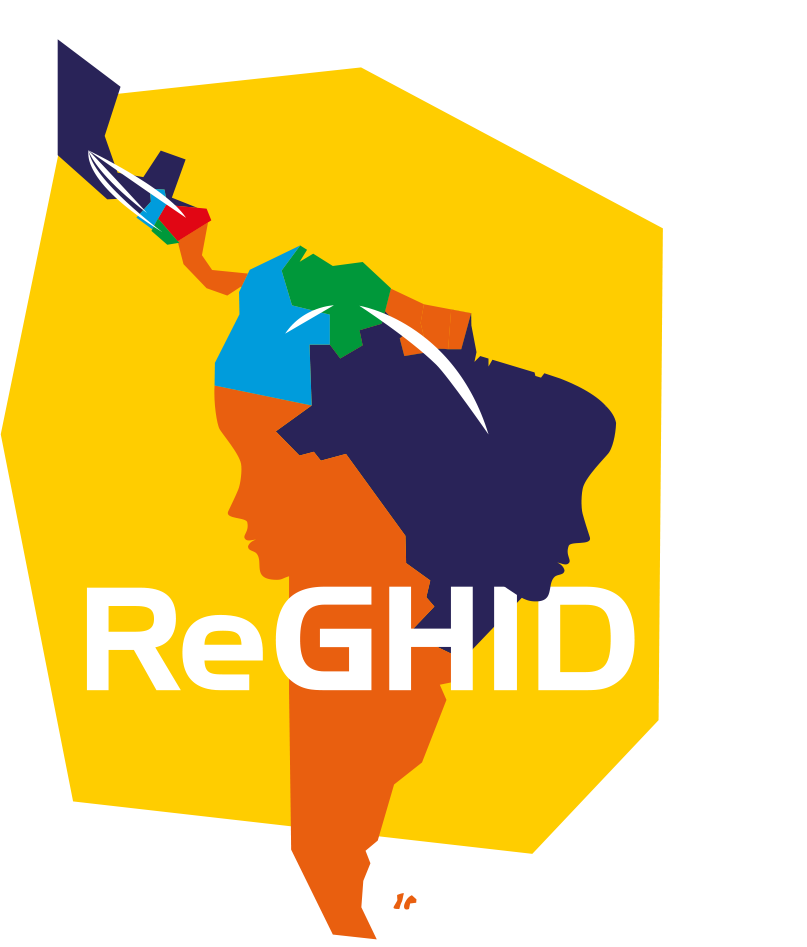ReGHID General Project Meeting – September 2021
ReGHID General Project Meeting – September 2021
14 December 2021 0
ReGHID’s general project meeting took place virtually on 9th September 2021. Our international partners from the UK, Brazil, Colombia and Central America showcased the positive progress that had been made across the board. We were pleased to welcome two new partners to the project: FLACSO El Salvador and the CHIMUMI Foundation of Tapachula, Mexico, and very much look forward to their expertise and contributions.
The interdisciplinary nature of this project means that all partners have worked in constant dialogue and engaging with the research questions through mixed methodologies for data collection and analysis. Data collection is almost in its final stage, and our Co-Investigators (Co-Is) used quantitative and qualitative methods, including participatory research through photovoice activities with migrant women and girls. The meeting was an opportunity to share and discuss preliminary findings, and next steps.
Co-Is from Fiocruz and York University reported on the successful roll-out of a survey that captures health status of Venezuelan women and girls migrants as they embarked in their journeys to when they arrive in Brazil. The survey allows testing how displacement is a determinant of sexual and reproductive health (SRH) needs and rights of women and girls; and the opportunities for displaced women and adolescent girls to act upon information for developing coping mechanisms and improving conditions for socioeconomic wellbeing. This is complementary to the intensive fieldwork conducted by partners at the Maranhão and the Southampton team who made remarkable progress in interviewing migrant women and adolescents – including indigenous Warao women – and health and migration authorities. This work will be further enhanced by the ongoing photovoice methodology which provides migrant women and adolescents with a ‘voice’ , shedding new light on the intersecting injustices that affect their reproductive and sexual health and rights (SSRH) and access to corresponding services.
Co-Is from Los Andes University in Colombia presented progress of their work that is based on modelling appropriate and responsive health systems in the face of the challenges identified, and what we called the AGAPE guide, which is co-produced with migrant women from Venezuela in Colombia to develop information that is relevant to migrant women and girls regarding SRH. Their work has been based on qualitative and participatory research and that they had successfully completed the first stage of focus groups and interviews with Venezuelan migrant women in Colombia.
The meeting was also followed by presentations by the teams at FLACSO El Salvador and the quantitative team in Southampton leading interviews with migrant women and girls in a different corridor of migration in Mesoamerica, focusing on the flow from Central America to Mexico. There, with the support of Fundación CHIMUMI, the team has been conducting interviews and testing a survey that will be implemented soon with the support of IOM in El Salvador.
The multidisciplinary nature of the research and mixed methodologies employed will allow us to shed light on the many needs, challenges, barriers and coping mechanisms that women and girls in both corridors of migration, from Venezuela to Brazil/Colombia and from Central America to Mexico, face in relation to their SSRH needs and rights, identifying at the same time opportunities for improvement and safeguard rights.
Despite the limitations imposed by the continuing global pandemic, the meeting was a success and provided all participants with the platform to demonstrate the progress made so far. A constructive Q&A session ensued, which concluded with an agreement on the steps that needed to be taken in order to consolidate the data collection and analysis; development of an appropriate analytical framework for every research method employed; the production of academic papers, demonstration of ‘Impact’ and production of reports which could affect public policy as well as infographics, short articles and blogs. Thoughts were also exchanged on the way forward with regard to stimulating the discourse between academic and policy spheres, the dissemination of information and the legacy of the ReGHID project.
